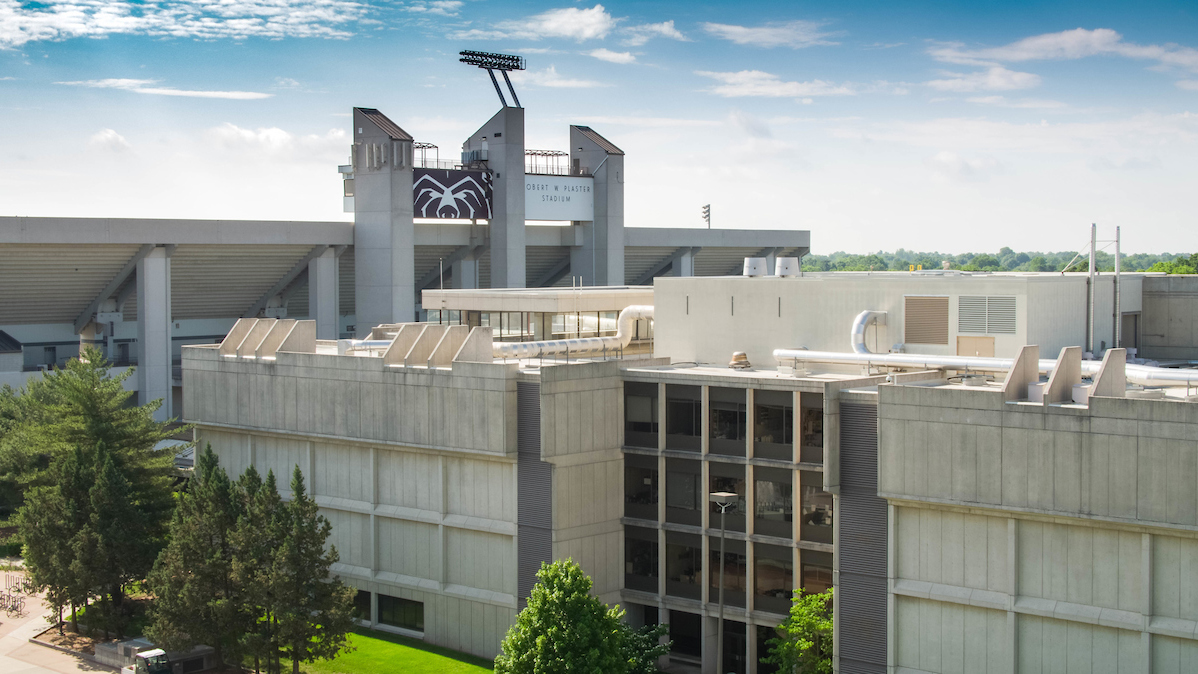Dr. Melida Gutierrez, Dr. Richard Biagioni and graduate Miles Pearson conducted a study to determine the amount of bioavailable metals found in streams nearby Aurora, Missouri.
Each researcher brought a different type of expertise to the table.
This study was the thesis work of Pearson, a 2017 chemistry graduate. Gutierrez, professor of geography, geology and planning, collected sediments in the streams and provided the geology perspective for the project. Biagioni, professor of chemistry, was Pearson’s mentor and helped him with the analytical chemistry aspects of the research.
“It’s a nice example how science can work. We all have distinct expertise, and the collaboration allows us to do better work than we could do independently,” said Biagioni.
The study focused on determining the amount of metal that attaches to five different chemical phases. Two phases release metals to become bioavailable, meaning they can be absorbed into a living system. The metals that are not released are inert and do not pose a threat.
“The study shows areas in southwest Missouri are still impacted by mining wastes, even though they were remediated 20 years ago or so,” said Gutierrez.
The study also identified specific contaminated areas and what would happen to the metals if the conditions of the sediment change.
In March, their research will be published in the Journal of International Mine Water Association’s quarterly journal, “Mine Water and the Environment.”
“It’s like a new piece of the puzzle has been completed,” said Gutierrez.

